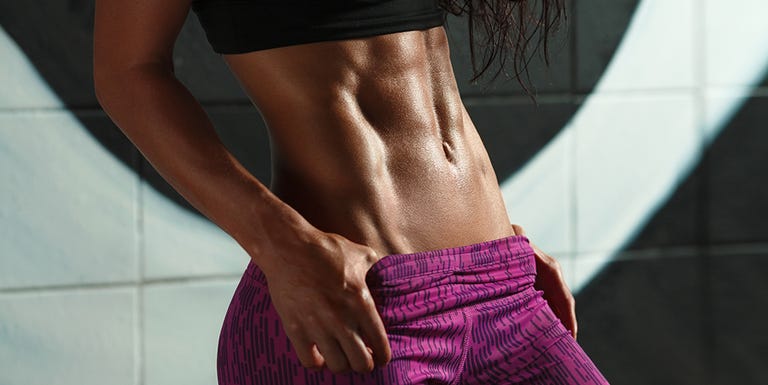
The six-pack has long been #goals when it comes to abs—not just because it practically guarantees your have a super-strong core, but because it’s visual proof of that fact.
But if you look at some of the uber-ripped trainers out there, you might notice they’re showing off a little extra: eight-pack abs. Are these near-mythical abs muscles something mere mortals can achieve? Or are they reserved for the fitness elite who seem to do nothing but work out and chug protein mix?
What Exactly Are 8-Pack Abs?
Before you can think about an eight-pack, you have to understand the six-pack. What looks like six individual muscles is actually just one muscle: the rectus abdominis, says Astrid Swan, NASM-certified personal trainer and Premier Protein ambassador (who’s well-known for her chiseled abs.)
Don’t train to be skinny…. train to be a #BADASS!!! ??
A post shared by Astrid Swan (@astrid_swan) on
“The rectus abdominis is crossed by three fibrous bands called the tendinous intersections,” she explains. These bands are meant to support the body and help with movements such as flexion, and lay in front of your muscles. “One band is usually situated at the level of the umbilicus, one at the lower end of the sternum, and the third halfway between the two,” Swan says.
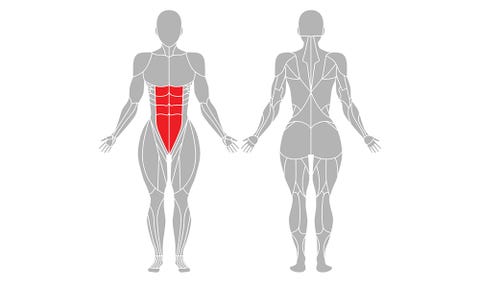
What that really means is that while muscle plays a part in six-pack abs—in that you need to have a tight, strong rectus abdominis for them to exist—it’s really connective tissue that creates the segmented look of individualized ab muscles.
It’s essentially the same deal when you’re talking about eight-pack abs, except there’s another tendinous intersection coming into play.
How Do You Get 8-Pack Abs?
If you want six- or eight-pack abs, you really need to strengthen your rectus abdominis. And to do that, you need to “stop doing basic crunches!” says Swan. “I hear people say ‘I do 100 crunches a day’ and I respond with ‘how strong is your neck?!’ Don’t get me wrong, I love variations of crunches, but to develop your abs you need to find new ways to challenge them.”
Jackknives, scissor kicks, and reverse burpees are a few of Swan’s favorite abs exercises. “And don’t be afraid to use weights when working on your abs!” she says. “I love kettlebell swings, standing windmills, hanging leg raises, renegade rows to squat thrusters, ball slams, and battle ropes.” (Check out the renegade row move below.)
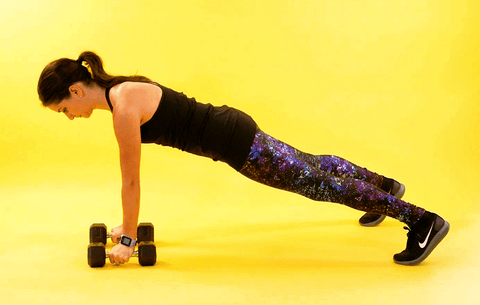
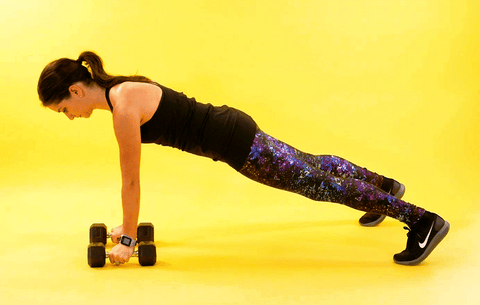
Jenn Pena/ Alyssa Zolna
Abs work goes beyond the gym, too. “I always tell my clients that every day, no matter what you’re doing—from workouts to driving your car—you should be working on your core,” says Swan. “Actual abs work could be done three days a week, but there is nothing that we do that doesn’t involve your core, so always keep it engaged!”
It’s More Than Just Exercise
You’ve heard the saying “abs are made in the kitchen,” though, right? If you really want a six- or eight-pack, eating right is so important. “Eating the correct amount of calories, eating for fuel, and eating clean are what is going to make you and your abs stand out!” says Swan.
And protein is key to abs development, because it’s chock full of amino acids, which are the building blocks of muscles. “Muscles need fuel to grow, so I make sure to eat within 30 minutes of my workout.”
The Real Secret to An 8-Pack
Okay, it’s time to get really real, though: While it is possible for anyone—male or female!—to have an eight-pack, “having eight-pack abs is highly dependent on genetics and body fat composition,” says Swan. If you work your ass off and have a six-pack, “that additional two-pack is just connective tissue that’s organized primarily due to genetics.”
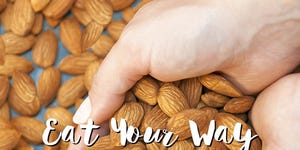

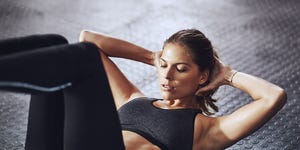
Unfortunately, you can’t change the way these fibrous bands pass across your rectus abdominis. So even if you have a rock-hard core, if your connective tissues don’t extend completely across the muscles, you likely won’t ever get the appearance of those individualized abs muscles.
But that’s totally fine. Doing the work to get eight-pack abs—including strengthening your muscles and eating clean and healthy—is certainly never going to hurt, as long as you stay focused on the physical benefits versus the aesthetic results.
Because, at the end of the day, strength isn’t about what your muscles look like, but rather what they empower you to do.
Source: Read Full Article
